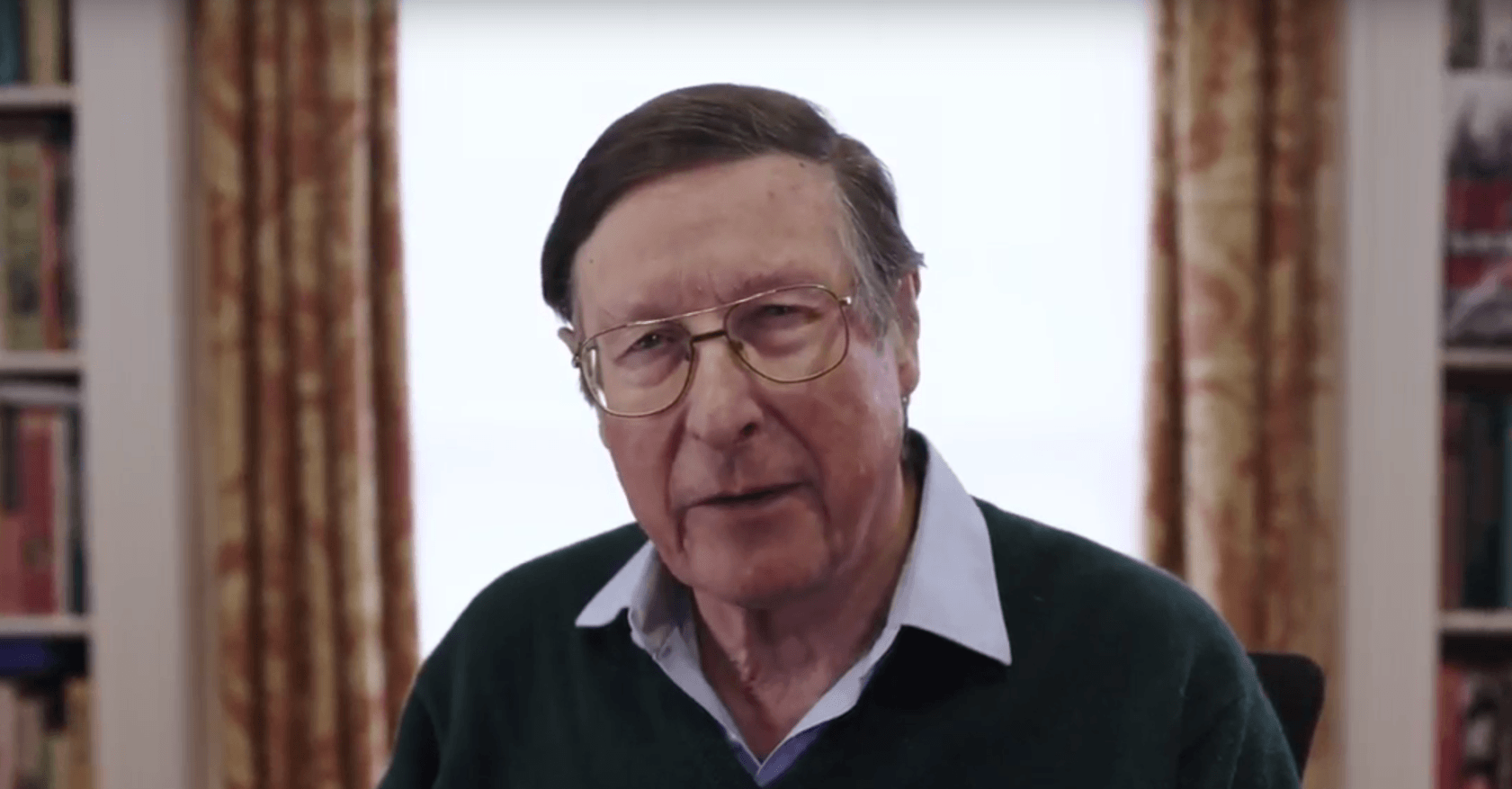We shall never know the identity of the marketing genius who persuaded the early Christians to couple the pagan feast of the winter solstice with the birth of a child, but the concept has prospered beyond its sponsors’ wildest imaginings. In an era in which faith is in steep decline across the Western world, Christmas retains its hold on popular imagination, as does no other festival.
Easter is nowadays treated as a spring jolly, symbolised by eggs and bunnies. Suffering, death and even resurrection seem to most people unacceptably grim stuff, when days are lengthening and gardens beginning to come to life. Births and babies, however, are irresistible stimulants to sentimentality, especially with donkeys, sheep and other cuddly residents of the stable performing bray-on and baa-on parts.
None of the above is intended either to affront the sensibilities of believing Christians, or to imply my own lack of enthusiasm for next week’s orgies. I love Christmas, down to its last sprig of holly and pantomime dame. I am merely too wedded to a rational study of the past to reject the evidence that the gospels were written several lifetimes after the events they claimed to describe, together with the long pre-Christian history of the festival.
Discussing this the other night with my favourite historian, also a sceptic about the exactitude of the New Testament story, he nonetheless urged a visit to Milton’s Hymn on the Morning of Christ’s Nativity, written in 1629. He defied me not to shed a tear if I read it aloud, down to the last verse:
But see, the Virgin blest
Hath laid her Babe to rest…
Heaven’s youngest teemed star.
Hath fixed her polished ear,
Her sleeping Lord with handmaid lamp attending;
And all about the courtly stable,
Bright-harnessed angels sit in order serviceable.
Milton believed that the gospels chronicled history, as did most of his contemporaries, and indeed Western peoples through the 19th Century, when even some educated ones made a frightful fuss about Darwin and the Theory of Evolution.
In our own times John Betjeman yearned to swallow the story, and wrote about it one of his best-loved poems, still often read at carol services. The last stanzas are especially characteristic of their composer, whom I had the joy of knowing well, mingling deep romanticism and gentle cynicism:
And is it true ? For if it is,
No loving fingers tying strings
Around those tissued fripperies,
The sweet and silly Christmas things,
Bath salts and inexpensive scent
And hideous ties so kindly meant,
No love that in a family dwells,
No carolling in frosty air,
Nor all the steeple-shaking bells
Can with this single Truth compare-
That God was man in Palestine
And lives to-day in Bread and Wine.
For some of us, the best bit of Christmas comes before the event. We delight in shops at their brightest, together with fanciful hopes of playing real-life Happy Families. My grandfather, a Pickwickian who rechristened every house into which he moved with a name borrowed from Dickens, wassailed for weeks. In his hall he hung a sign ‘Peace and Goodwill To All Men, with the following exceptions..’. Pencil and paper were appended, to enable callers to contribute their own nominees. Were this custom revived in Britain’s mood today, contributors would require very long scrolls indeed.
I love the phrase used by old scholarly chroniclers, who recorded kings, queens and their followers appointing a rendezvous at which to ‘keep Christmas’ rather than merely spend it, together with their accounts of the accompanying revels, games, masques.
The first recorded mention of seasonal presents or ‘boxes’ for servants occurs in Samuel Pepys’ diary entry for 19 December 1663, when he called on his shoemaker and ‘gave something to the boy’s box against Christmas’. By the 1830s this custom had become fixed on 26 December, St.Stephen’s Day, associated since the 10th century with the Bohemian legend of Duke Wencelas’s generosity to the poor.
Pepys wrote a trifle grumpily in December 1664: ‘I went to bed, leaving my wife and all her folks to make Christmas gamballs tonight. I waked in the morning about 6 a-clock, and my wife not come to bed. I lacked a pot but there was none, and bitter cold, so was forced to rise and piss in the chimny….Then hear my people coming up and so I rose; and my wife to bed at 8 a-clock, which vexed me a little, but I believe there was no hurt in it all, but only mirth- therefore took no notice’.
Legend holds that Dickens invented the holiday as we know it. In truth, eight years before he published A Christmas Carol in 1843, his illustrator Robert Seymour produced The Book of Christmas, which catalogued many festive features that are now familiar.
Decades earlier, the Hanoverians had introduced to England the decorated tree. On 24 December 1841, two years ahead of Carol, Queen Victoria wrote in her journal: ‘Christmas, I always look upon as a most dear happy time, also for Albert, who enjoyed it naturally still more in his happy home, which mine, certainly, as a child was not. It is a pleasure to have this blessed festival associated with one’s happiest days. The very smell of the Christmas Trees recalls pleasant memories. To think, we have already 2 Children now, & one who already enjoys the sight, – it seems like a dream’.
The Prince Consort assumed personal responsibility for decorating the trees at Windsor Castle with wax candles, barley sugar and so-called sugar plums- caraway or aniseed treats covered with boiled sugar and crafted into plum shapes, wired to enable them to be hung.
Children were then the only family recipients of gifts. Greetings cards began to be exchanged in 1846, crackers to be pulled a decade later. A turkey or goose was established as seasonal fare. Some humble people subscribed through the year to ‘goose clubs’, whose members in December received the wherewithal for a dinner. Mr.Henry Baker belonged to one such, at the Alpha Inn in Bloomsbury, which provided him with passing ownership of a bird in whose crop reposed the Countess of Morcar’s Blue Carbuncle, until Sherlock Holmes restored that fabulous diamond to its owner.
Yet it was indeed Dickens who set his mark upon the season in a fashion that has never faded, as Anne Treneman described in last Saturday’s Review. His great fairy story emphasises the contrast between the brightness, warmth, light of the family hearth and the chill darkness outside, wherein miseries and cruelties persist. Carol propelled children to the centre of the seasonal stage, where they rightfully remain.
Peter Ackroyd, among the novelist’s best biographers, emphasises that the book is overwhelmingly about money, a preoccupation of Dickens: ‘Miserliness as vice. Generosity as virtue. How people obtain money. How people exert power over others because of money. How money can be an aspect of cruelty. How money can destroy a family. How the want of money is oppressive….Dickens imagines what he once was and what he might have become’.
In that era the Christmas break lasted only a single day, though an American factory-owner is alleged to have granted his workers an extra, when bewitched by reading of the harrowing of Scrooge. Households were obliged to rely solely upon the talents of family and friends to play, sing, read aloud, act for each other in the spirit of the season.
On 26 December 1843, Jane Carlyle attended a local London get-together: ‘Only think of that excellent Dickens playing the conjuror for one whole hour- the best conjuror I ever saw’, then dancing, ‘Dickens did all but go down on his knees to make me– waltz with him !’. Yet few could summon up a genius to entertain them: there were far more tin-eared family players and singers than gifted ones. Whatever the shortcomings of our telly, it offers choicer entertainment than the pianola or most soprano daughter.
This remains nonetheless a season when many people wallow in nostalgia, reach out towards a lost and supposedly happier and more innocent past. Not me. I was there. The late 1940s and early 1950s, when I wore short trousers, represented a tidemark between ancient and modern.
Our own relatively prosperous middle-class home boasted only a wind-up gramophone. In grey and rationed postwar Britain, I pressed my nose yearningly against the glass cases in which Harrods toy department displayed a wondrous array of lead model soldiers. These were forbidden delights, not merely for little Hastingses: amid a desperate trade gap, each was marked FOR EXPORT ONLY.
Outside in the street, the gaslighters even of rich Knightsbridge were often invisible beneath winter smogs. At home in the country, pipes froze; there was seldom enough heat; meagre allocations of hot water. At 21st century country parties it may seem dispiriting to see adults struggling to rouse cheer on elderflower cordial, but anything is better than my father and many of his contemporaries driving little ones home after swimming in rum punch.
Trees were still lit by real candles, oh-so-romantic but responsible for multiple scorched fingers and occasional conflagrations. Nancy Mitford describes how in her family’s grand house, a posse of servants stood guard beneath the waxen lights, armed with water and extinguishers.
Our green boughs were adorned with glass baubles brought back from America by my father, at a time when such luxuries were unavailable in London shops, but those first-generation wonders shattered at a touch of childish clumsiness. On TV after the royal broadcast our big treat circa 1953 was an old Ginger Rogers and Fred Astaire movie. Often, however, in mid-duet the screen dissolved into a cascade of fuzzy grey lines.
Then as now, of course, the only part that mattered to children was the smash-and-grab for presents. Cap guns were favourites for small boys in that Hopalong Cassidy era. How we loved to dress up as cowboys and shoot our way around the village !
Nowadays such a firepower display would invite a police armed response unit, though I am unconvinced that our society is any less violent because children play out their fantasies on tablets rather than with alloy or plastic artefacts.
Anybody who experienced the family food of 70 years ago rejoices in today’s delicious uplift, thanks to Tesco, Waitrose and their kin. Tree decorations have become cheaper. Lights work. Fathers are spared that ghastly Christmas Eve ritual of testing every bulb on a 100-lamp circuit to discover which one is bust.
‘Bust’ was a big word at New Elizabethan Christmases. In the pre-Lego/Playmobil era, toys were brittle things, prone to be tested to destruction before the turkey hit the table. ‘It’s bust, daddy’, was a catchline every father learned to dread, especially in the context of model railways.
Recent experience with Hornby-Dublo for my grandchildren reminds me of an old nursery law: for every minute that an electric train spends running around a track, twenty are needed, to explore why it is failing to do so. Toys can be too realistic, in this case mimicking Network Rail.
I look back on childhood Christmases chiefly as seasons that started out groaning with promise, then dissolved into anticlimax. It was not that Santa Claus failed to appear, but that instead, in a fashion familiar to believers in Brexit, he failed to deliver quite what one requested in the list left beside the fireplace on Christmas Eve, along with a carrot for the reindeer.
My most spectacular seasonal letdown was a balsa-wood Jetex helicopter, propelled by two miniature rocket motors on the rotor blades. Here was 1956 high tech, with solid-fuel propellants ignited by slow fuse. I sense the disbelief of modern parents reading this: if Jetex still existed, Health & Safety would indeed have a nervous breakdown. I suffered impressive burns during ground testing.
The machine’s first flight, in the field opposite our cottage, would have roused a sense of déjà vu in Sir Richard Branson. It soared triumphantly into the sky, then at fifty feet burst into flames. That episode took place at 9am on Christmas morning: my seasonal spirit never revived thereafter.
So now you know why Yuletide present seems to those of a certain age infinitely more appealing than Yuletides past. I opened this essay with a mildly irreligious thought, but will close with a more respectful one. There is an old English ballad, concerning the fate of a farmer who defiled the sanctity of the festival by going out to plough. Its last lines run:
His wife and children’s out of place,
His beasts and cattle they’re almost lost,
His beasts and cattle they die away,
For ploughing on old Christmas Day.
His beasts and cattle they die away,
For ploughing on Our Lord’s birthday.
Whatever the defects of the faiths we variously espouse, something is lost if we abandon what our ancestors called the fear of God, reflected in that old ditty: a recognition that humankind has its being at the mercy of higher forces such as even the mightiest or richest cannot challenge. Especially as we sing carols in shadowy, shivery village churches, it does not seem mawkish to muse upon such things. Then we can file out into darkness, go home to kiss under the mistletoe as many loved ones as MeToo will permit, and give thanks for all that we have which should be wholly sincere, even when distanced from the New Testament story. Happy Christmas.
First Published in The Times on 23rd December 2018.


